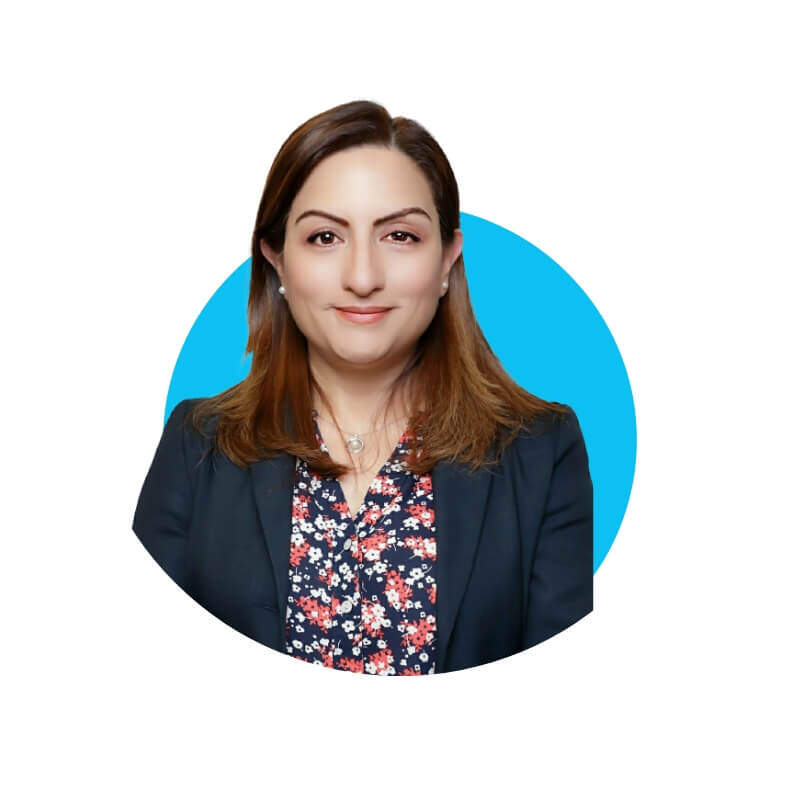Sjogren’s Syndrome Treatment in Dubai, Abu Dhabi and Al Ain
Overview
Sjogren’s syndrome is a chronic autoimmune disorder that causes your immune system to attack the glands responsible for producing tears, saliva and other moisturizing fluids. This inhibits glandular function, causing dry lips, eyes, skin, nose, upper respiratory tract, and vagina. This disorder affects people of all races and ages, but it is more common in women than men.
What causes Sjogren’s syndrome?
The exact cause behind Sjogren’s Syndrome is still unidentified. However, research suggests that genetic factors, sex hormones, environmental triggers, and viral infections may play a role in developing autoimmune disorders. Also, People with rheumatoid arthritis, scleroderma, and lupus are more likely to be affected by Sjogren’s syndrome.
What are the symptoms of Sjogren’s syndrome?
Eye and mouth dryness is the most common symptom of Sjogren’s syndrome, followed by muscle pain and joint discomfort (arthritis/arthralgia).
Other symptoms may include:
- Dental decay and subsequent tooth loss.
- Chronic mouth dryness
- Persistent dry cough
- Difficulties chewing and swallowing
- Getting a raspy voice.
- Difficulty speaking.
- Enlarged salivary glands.
- Having an oral thrush, a fungal infection in the mouth.
The symptoms above can be aggravated by smoking, air travel, ceiling fans, and air-conditioned or windy settings. In case the immune system starts targeting other parts of the body, the patient may experience the following:
- Fatigue
- Brain fog.
- Sore muscles.
- Small fiber neuropathy.
- Joint inflammation, along with stiffness and pain.
- Salivary glands swelling between the jaw and ears.
- Peripheral neuropathy, or periodic tingling and pain in the arms and legs.
How is Sjogren’s syndrome diagnosed?
Sjogren’s syndrome can be challenging to identify because its symptoms are similar to those of lupus and fibromyalgia. For instance, dry mouth and eyes symptoms can also be side effects of medications used to treat other conditions, such as depression or high blood pressure. Thus, our expert rheumatologist will perform a series of advanced tests to reach an accurate diagnosis, including:
- Schirmer’s test: An eye exam that involves using a special blotting paper held against the eye to determine the level of tear production.
- Rose Bengal and Lissamine Green: This test involves using dyes to detect dry patches on the eye’s surface.
- Salivary Flow: This test is used to determine the amount of saliva created over a given period.
- Biopsy: This diagnostic procedure involves taking a sample of salivary gland tissue (usually from the lip) to be examined under a microscope.
- Blood tests: These may be performed to evaluate the amounts of specific immune system cells in the blood and detect any kidney or liver abnormalities.
How is Sjogren’s syndrome treated?
Symptoms like Saliva shortage and mouth dryness are usually treated with medications that increase salivation. These medications are only effective for a few hours; therefore, patients may require multiple doses per day.
Your doctor may also recommend saliva replacements and gels that coat the mouth and alleviate dryness. Artificial saliva is usually available in the form of Sprays, pre-treated swabs, and liquids. These are especially beneficial at night since the mouth tends to be dry during sleep.
As for eye dryness and the lack of tear production, artificial tears can help lubricate the eyes and are accessible without a prescription (OTC). Moisture chamber glasses may also be helpful as they are specially designed to block irritants and preserve moisture. In cases of respiratory dryness, saliva-stimulating medications can be used to moisturize the area.
Moreover, rheumatologists may prescribe nonsteroidal anti-inflammatory drugs (NSAIDs) for patients suffering from joint pain. Patients with rheumatoid arthritis who experience fatigue and rashes can benefit from disease-modifying antirheumatic drugs (DMARDs).
Book your appointment at Novomed today!
At Novomed, our team of expert rheumatologists offers comprehensive healthcare services for patients of all ages, including primary care, diagnosis, and treatment of both basic and severe illnesses. Our specialists collaborate with a multidisciplinary team of highly trained physicians to ensure that you receive optimal care and treatment.
To book a consultation with our expert rheumatologist in Dubai or for further information, call us toll-free at 800 (NOVO) 6686 or click the live chat icon at the bottom of the screen.
This condition is more prevalent in women since nine out of ten individuals with Sjögren’s are females. The usual age of diagnosis is in the late 40s; however, it can affect people of all ages, including children and both sexes.
Untreated Sjogren’s syndrome is related to significant consequences, including:
- A possibility of developing lymphoma and multiple myeloma.
- Oral yeast infections.
- Dental cavities.
- Vision impairments.
- Inflammation that causes bronchitis, pneumonia, and other lung conditions.
- Kidney diseases.
- Autoimmune hepatitis or liver cirrhosis.
- Having a child with cardiac issues or lupus.
- Peripheral neuropathy.
- Interstitial cystitis of the bladder.

